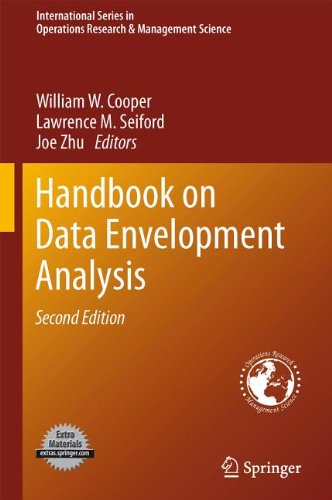

Most ebook files are in PDF format, so you can easily read them using various software such as Foxit Reader or directly on the Google Chrome browser.
Some ebook files are released by publishers in other formats such as .awz, .mobi, .epub, .fb2, etc. You may need to install specific software to read these formats on mobile/PC, such as Calibre.
Please read the tutorial at this link: https://ebookbell.com/faq
We offer FREE conversion to the popular formats you request; however, this may take some time. Therefore, right after payment, please email us, and we will try to provide the service as quickly as possible.
For some exceptional file formats or broken links (if any), please refrain from opening any disputes. Instead, email us first, and we will try to assist within a maximum of 6 hours.
EbookBell Team

4.1
70 reviewsThis handbook covers DEA topics that are extensively used and solidly based. The purpose of the handbook is to (1) describe and elucidate the state of the field and (2), where appropriate, extend the frontier of DEA research. It defines the state-of-the-art of DEA methodology and its uses. This handbook is intended to represent a milestone in the progression of DEA. Written by experts, who are generally major contributors to the topics to be covered, it includes a comprehensive review and discussion of basic DEA models, which, in the present issue extensions to the basic DEA methods, and a collection of DEA applications in the areas of banking, engineering, health care, and services. The handbook's chapters are organized into two categories: (i) basic DEA models, concepts, and their extensions, and (ii) DEA applications. First edition contributors have returned to update their work.
The second edition includes updated versions of selected first edition chapters. New chapters have been added on:
· Different approaches with no need for a priori choices of weights (called “multipliers) that reflect meaningful trade-offs.
· Construction of static and dynamic DEA technologies.
· Slacks-based model and its extensions
· DEA models for DMUs that have internal structures network DEA that can be used for measuring supply chain operations.
· Selection of DEA applications in the service sector with a focus on building a conceptual framework, research design and interpreting results.